
Playtime: The leisure of John Le Mesurier
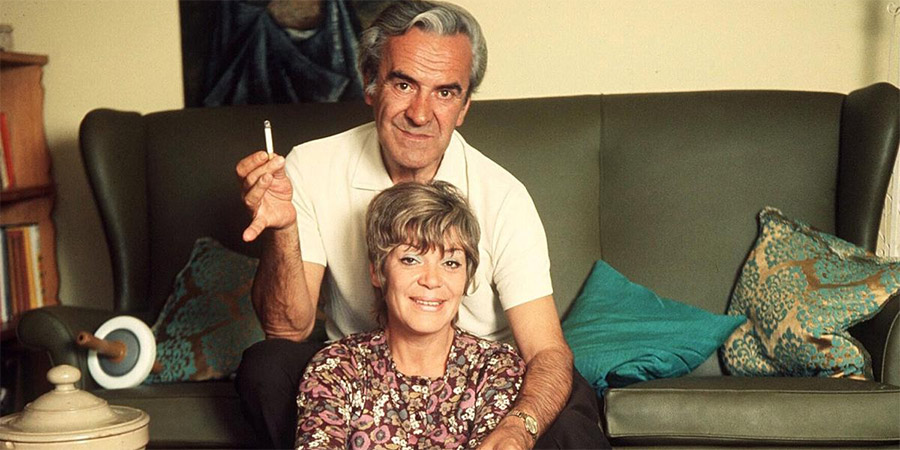
'John Le Mesurier?' Jimmy Perry, the co-writer of Dad's Army, exclaimed when I first asked him about the actor. 'That man just swanned through life!'
It was true. The stories about the man his friends called Le Mez, and his inexorably languid approach to life, are legion. There was the time, for instance, when his Dad's Army colleagues, finding themselves left unattended, looked on in wonder as Le Mesurier sat back contentedly with his eyes shut while one make-up artist brushed his hair, a second gave him a manicure, a third fetched him a sandwich and a fourth removed his watch, wound it up for him and then placed it back on his wrist.
Arthur Lowe, one of life's labourers, would never quite work out how Le Mesurier was able to stroll through things that others found such a strain. All he could do, upon hearing of John's latest sybaritic adventure, was to raise his eyebrows, puff his cheeks out and mutter, 'Extraordinary'.
As their friend and colleague Frank Williams, who played the vicar Timothy Farthing, once told me, Le Mesurier always seemed able to rely on the kindness of strangers to keep him coasting on an even keel. There was, for example, the occasion when they were together on a provincial theatre tour: 'John said to me, "What do you do about your dirty washing?" I said, "Well, John, I find a laundry that will do it during the week, and I take it in and then collect it at the end of the week". So I said, "What do you do?" He said, "Er, well, I just sort of leave it around in my room and, er, somehow, some kind person always does it for me". And that was so typical of John - being helpless and having people come to his rescue!'
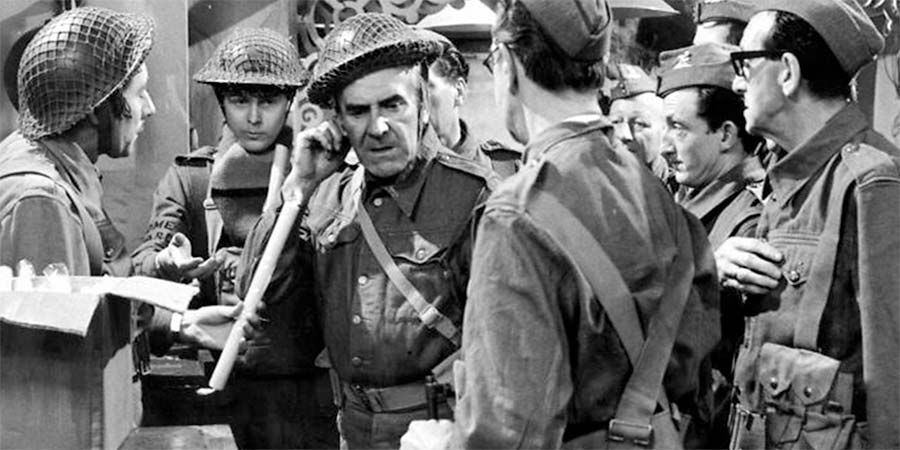
Jimmy Perry and David Croft admitted that they would write scenes for Sergeant Wilson that merely reflected how they imagined Le Mesurier would react in such a situation. In one episode, for example, when Wilson is obliged to take part in a training exercise by a fierce-natured instructor, the script drew upon how enervated Le Mesurier usually behaved when drifting through a rehearsal:
INSTRUCTOR: Right! Now, I'm a gestapo officer. Now you, Sergeant -
WILSON: [As if waking from a dream] Mmmm? Yes?
INSTRUCTOR: What are you doing in France?
WILSON: I'm not in France.
INSTRUCTOR: Oh, yes, you are! You got there by parachute. I've captured you, and now I'm interrogating you!
WILSON: Oh, I see. Well: 'Bonjour'.
INSTRUCTOR: You're not supposed to tell me anything! Now: What are you doing in France?
WILSON: I don't know.
INSTRUCTOR: You're trying to blow up a munitions factory.
WILSON: [Sounding bored] All right: I was trying to blow up a munitions factory.
INSTRUCTOR: So! You admit it!
WILSON: Oh, really! This is too absurd!
INSTRUCTOR: I'll show you how absurd it is! [Gets hold of Wilson's hand] I'm putting matches underneath your fingernails! I'm setting light to them! They're burning down! Now they've reached your fingers! You're in agony! How do you like that?
WILSON: Well, to be absolutely honest, it isn't really bothering me very much!
'You could probably have ignited a grenade under John,' David Croft once told me, 'and I doubt he would have batted an eyelid. I remember once on location, everything was going wrong, we had extras running about where they shouldn't, a pack of supposedly trained dogs were ignoring us and racing around chasing pigeons, equipment was falling down - utter chaos - and there was John, sitting back in his deckchair, sipping half a pint of beer and saying quite casually, "It's not going terribly well, today, is it?" I could have throttled him, but that was John - he moved to his own beat'.
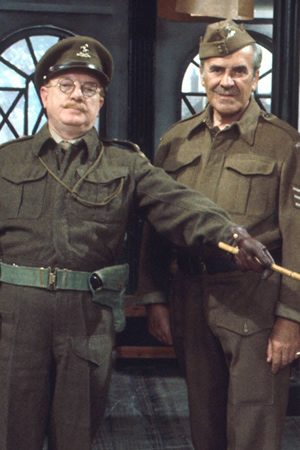
He excelled at casual meandering. Take the occasion when what was supposed to be a four-hour journey from London to Thetford for location filming turned into an elaborate cat-like peregrination after he decided - having grown bored of his own car and abandoning it, on a whim, beneath the Hammersmith flyover - to hitch a lift to Newmarket for the races, then tour the pubs around Bury St Edmunds before stumbling on a pleasant place to sleep. When he finally arrived at his official destination, so much later than everyone else, he replied to Arthur Lowe's inquiry as to how his journey had been by smiling and saying somewhat dreamily, 'Fine. It took two days'. Lowe, as usual, raised his eyebrows, puffed out his cheeks and muttered, 'Extraordinary'.
A very laid-back adventurer, Le Mesurier was most likely to be coaxed out of his soft leather easy chair by anything that was odd or unexpected in life. He would wander into out-of-the-way bars in the hope of encountering some woozy little eccentric, or travel miles for the chance to hear an expletive-speaking parrot, or spy some erotic topiary. The banal never interested him; he was drawn to colours and quirks.
Most of the time, however, he was content to venture no further than his favourite local pub, The Fox in North End Crescent, West Kensington, where he would exchange pleasantries with the staff ('Good morning,' they would say; 'Is it?' was always his slightly sceptical reply), place his usual order ('A large gin and tonic - no ice or lemon - please'), settle down with his Daily Telegraph and do his level best to dawdle the day away.
He was not, most definitely, one of those actors who lived to work. He only worked in order to live.
His favourite time of the day, therefore, was when the work was finally over. That was the time when he would pour himself a generous glass of wine, sit back, pick up the phone, call a friend and, in a hopeful tone, ask of them his usual question: 'Playtime?'
His standard idea of recreation was to while away his leisure hours in night clubs, where he would unwind by having a drink (or several) and listening to jazz. It was there, in the stuffy Stygian gloom of some or other Soho venue, that he would let the irritations of the working day fade away as he lost himself in the music that he loved.
A decent pianist himself, he was always drawn to those individuals who were particularly competent and creative keyboard players. More generally, he was dazzled by anyone who seemed to combine a good heart with great artistry. 'Listening to artists like Bill Evans, Oscar Peterson or Alan Clare,' he would say, 'always made life seem that little bit brighter.'
He went wherever the best musicians and singers happened to be playing - the London club scene was thriving in those days, with such appealingly intimate places as Club Eleven in Great Windmill Street, the 51 Club in Great Newport Street, the Flamingo in Wardour Street, the Mandrake Club in Meard Street, The Establishment in Greek Street and, in a basement in Oxford Street, the Humphrey Lyttelton Club all competing for custom - but, in the early 1960s, he was most often to be found ensconced inside the recently-opened Ronnie Scott's in Gerrard Street, with a cigarette in one hand, a tumbler of gin or whisky cradled in the other, and his suede shoes tapping happily in time to the music. He could sometimes stay there for ages in a kind of smoky, boozy, blissful daze.
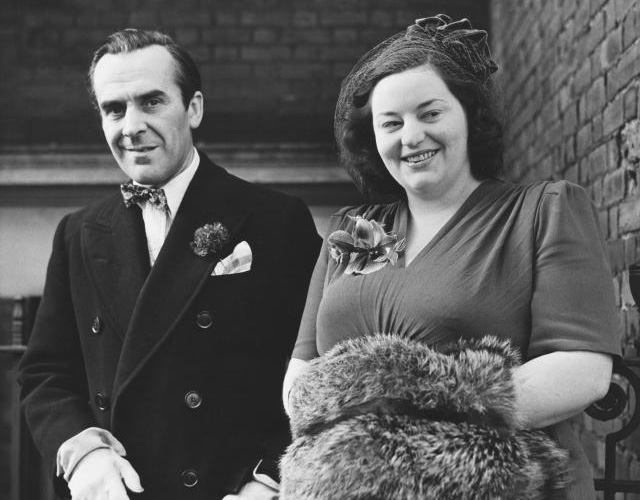
His sister-in-law Anne Valery would claim (with perhaps just a little exaggeration for dramatic effect) that John would sometimes even forget to wander back out in time for the odd occasion when he and his then-wife Hattie Jacques were meant to be co-hosting a show business party at their home in Eardley Crescent: 'John would turn up two days later and she'd say, "Where have you been?" and he'd say, "Oh, darling, I'm so sorry - very good jazz..." And she'd say, "BUT IT'S TWO DAYS LATER!" And he'd say, "Time goes so quickly when you can't see daylight".'
Even when he did remember to emerge for a pre-planned assignation, he often gave the impression that he had only just woken up from a long and lazy hibernation. On one such occasion, he was due to meet up with some family friends at the Royal Opera House in Covent Garden on a damp and gloomy November evening, and, after dragging himself away from some or other club, he wandered along Bow Street and entered the Opera House looking strangely puzzled: 'Darling,' he asked with a hint of a shiver, 'is it very cold for this time of year?' One of his friends replied, 'Well, no, darling, not really, but you are wearing a tropical suit...' He looked down at himself suspiciously and reflected for a moment on this information: 'Oh...yes...,' he mumbled, still sounding rather confused. 'I see...I understand...Y-e-s...'
It might not always have been entirely down to the jazz that he was often so distracted. It probably also had something to do with his increasingly strong fondness for 'jazz cigarettes'.
It started in the late Fifties, when his musician friends would pass them around for a puff, and developed during the Sixties, when the weed seemed to be everywhere he tended to frequent. In his later years, at those times when, under doctor's orders, he was trying to cut down on the drink, he chose pot to take its place ('He loved the fact that it was illegal,' his wife would recall), and there would even be the odd televised awards show when, spliff still squeezed between his fingers, he could be glimpsed drifting off into a dimension all of his own.
He still claimed to prefer, for most evenings in the clubs, a tipple to a toke, explaining that he found it a less distracting form of release when he was concentrating on the music. If he loved the performers - and he usually did - then he liked to give them his full attention.
Jazz was by no means the only genre he enjoyed. When both of his sons, Robin and Jake, became rock musicians, he was soon drawn into their own kind of cultural circles, and actually became quite a fan of a number of more contemporary and broadly popular acts.

Robin's career as a lead guitarist saw him progress from being a furry-costumed member of Mike Batt's Wombles (his departure was prompted by his own predilection for cigarettes of the herbal variety) to working for Rod Stewart, the Australian band Air Supply and the French rock star Johnny Hallyday. Jake - a drummer and songwriter - would be associated with the likes of Roxy Music, Stephen Duffy and Sade.
Some major players - from prog rock to pop - thus came into contact with Le Mesurier Senior, and the pleasure that ensued was mutual. They adored his effortless charm and elegant wit, and he admired their skill and stagecraft.
The Beatles - both together and separately - had always been great favourites (the White Album being the most played of his collection). He also had a soft spot for Keith Richards of the Rolling Stones (seeing something of himself in his sleepy swagger), while Ronnie Wood became one of his many drinking companions.
More recently, Earth, Wind & Fire, with their fusion of funk, jazz, soul and disco, became a particular favourite, to the extent that many visitors to the Le Mesurier residence during the late Seventies would enter the premises to the loud and proud sound of Boogie Wonderland blasting out from the speakers, and the sight of a very familiar tan-coloured suede shoe swaying gaily to the rhythm. John was especially impressed by the band's leader, Maurice White ('He's very smooth,' Le Mesurier enthused. 'Very, very, smoooooth'), and once sought him out back-stage after a concert to congratulate him on his performance.
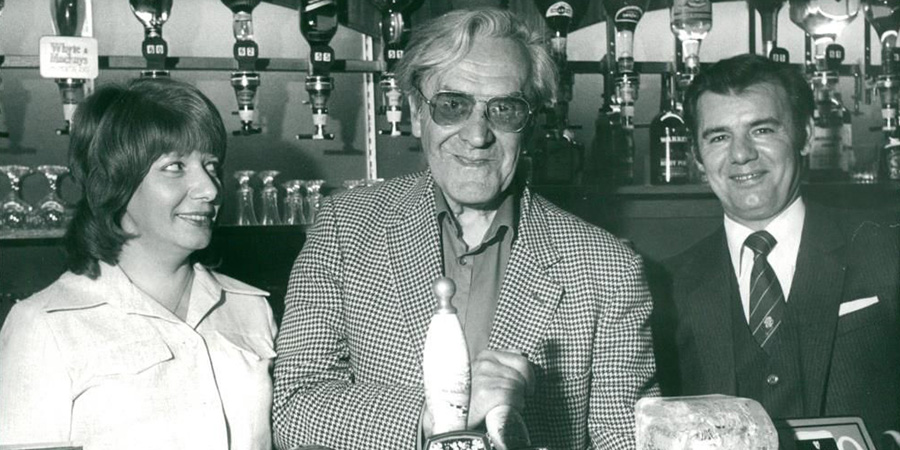
Two other much-loved contemporary musicians were Nile Rodgers and Bernard Edwards. During his later years, when he had settled in Ramsgate, Le Mez was known to stroll into his local pub, settle in his chair, and inquire, in his usual helpless way, if someone or other would mind awfully seeing if there was anything by Chic on the jukebox. Then, as the coins dropped and the sound of Good Times started blasting out, he would beam his distinctive thin-lipped grin and say, 'Oh, how very nice...How very nice indeed...'
John also took huge pleasure in seeing his son Robin in action, and once flew over to the US to see him perform at a Rod Stewart concert. 'Dad and Joanie came to San Francisco and saw us play there,' Robin recalled for me, 'then they came and stayed with us in Los Angeles and took in another show. The great thing was then that I could do it for him. I could get him the tickets, have him come to the concert and have a good time. It was wonderful, a really great time, having him there on my turf, so to speak.'
Robin also collaborated very happily with John on a delightful album, inspired by Margery Williams's children's book, called The Velveteen Rabbit ('I read the story,' Robin explained, 'thought it had possibilities and then asked Pa if he'd come on it too'), and the memory of the shared experience was something that both men would always treasure. Combining music, family and fun, it was, said John, one of the most pleasurable projects of his career.
There was one other brief but memorable occasion when Le Mesurier's leisure crossed over into his work, and that was due to his association with Derek Taylor. A sort of record industry equivalent of John Le Mesurier, in terms of his unflappable urbanity, Taylor was a former journalist from Liverpool who had really made his name in the 1960s first as the publicist of The Beatles (as well as The Beach Boys and The Byrds) and then as the head of The Beatles' increasingly chaotic Apple press office.
More recently, he had been active as a music executive, rising swiftly up the hierarchy at Warner Brothers in America to become 'Director of Special Projects'. He first met Le Mesurier in 1975, when he was overseeing the production of the soundtrack album of the Dad's Army stage show, and the two of them soon recognised each other as kindred spirits.
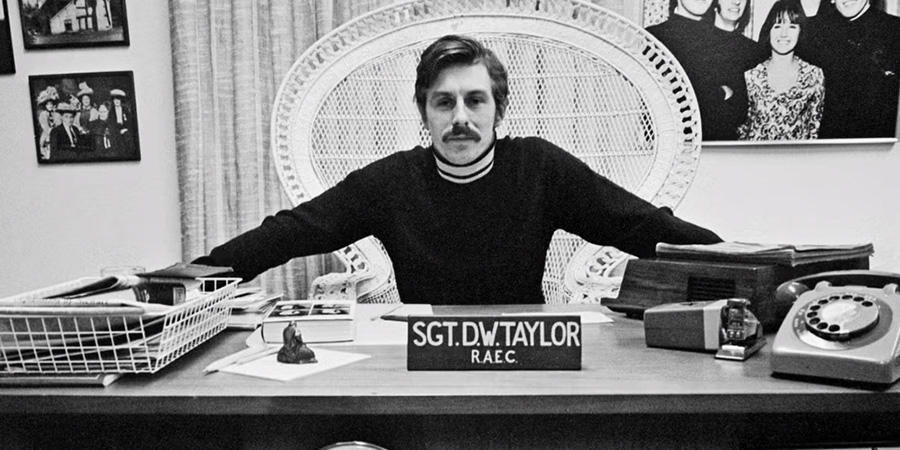
A masterful PR man with a wonderfully light touch (he was the one who, quite casually, decided to dub the Brian Wilson song Good Vibrations a 'pocket symphony') as well as a charmingly easy-going bon vivant (not for nothing was his era at Apple dubbed 'the longest cocktail party'), Taylor, like Le Mesurier, was a dapper, irreverent, intelligent and charming English gentleman with a sharp eye, a dry wit and a very good heart. He had so enjoyed his initial encounter with John, even though so much else was going on at the time in the studio, that, when they next met, he brought the actor a very carefully-chosen gift: the collected works of the Canadian economist and humourist Stephen Leacock.
'How kind of you, dear fellow,' John exclaimed, genuinely touched. Taylor pointed out two pieces in particular ('My Financial Career' and 'The Awful Fate of Melpomenus Jones') that he hoped that John would appreciate, and was delighted when John replied by recalling how, many years before, his father had often read to him those very same stories. 'Clearly,' Taylor would reflect, 'we had connected.'
The two men kept in touch, meeting every now and again and sending each other playful little notes and cards. On one occasion, for example, John wrote to him from a miserable little production booth off Dean Street in Soho where he had gone to record his latest batch of voiceovers: 'I was due to do a Cadbury commercial but at the last moment it was cancelled because the product became inedible and in fact tasted like an ageing turd. [...] So it's back to the drawing board or the labs again so that the commodity can be made more enchanting. I laugh about these things sometimes but not always'.
There would also be tart little remarks from John about other actors ('Given to wearing Anderson and Shepherd suits, full of charm and haughtiness, he is convinced he is thirteenth or fourteenth in line to the throne') as well as many delightfully whimsical observations about peculiar encounters ('At 3am the bell rang and there was someone breathing heavily through the letterbox saying that he had met me in Tregunter Road, Earls Court, in 1950 and had something he wanted to show me. We called the police and sent him merrily on his way'). Taylor, in turn, shared snippets with him about The Beatles, the Monty Python troupe and the vicissitudes of the music business, the media and existence in general (Le Mez was especially delighted to be sent a newspaper cutting from Derek reporting that the by-then New York-based John Lennon, when asked what he missed most about England, had replied 'Bath Oliver biscuits and John Le Mesurier').
'They were two of a kind, they really were,' Joan, Le Mesurier's third wife, would say of Derek and John. 'They loved the same things, the same books, the same music, the same kind of humour...everything. They fitted together beautifully.'
They certainly mirrored each other's mannerisms and moods. Both tended to wear tinted spectacles, as if to protect their tired eyes when they emerged from the latest darkened night club into the unfriendly glare of a far too lively-looking new morning. Both were rarely seen without a cigarette, of some or other type, perched elegantly between the tips of their delicate fingers. Both possessed the power, like discreet human magnets, to have people fluttering around them even when they seemed lost deep in a delightful daze.
Taylor himself later remarked admiringly of his friend that it was John's peculiar ambivalence, his ability, or rather his natural inclination, to seem both happy and sad at the same time, that struck such a chord. He clearly knew that life could be bloody and cruel, Taylor observed, 'but like those bad films among the good in which he appeared [...] there was always the shining Le Mesurier moment when things didn't seem quite so ghastly after all'.
As the relationship developed, and the meetings increased, Taylor came up with the idea of John recording an album all of his own. Le Mesurier, initially, was predictably resistant to the suggestion.
He was always resistant to any professional suggestion that seemed too far out of the ordinary, even when it appealed to him. Perhaps unsurprisingly for someone who had seen two of his wives abandon him, sudden disruptions made him anxious, and he much preferred the sense of security that came with a stable and predictable routine. The odd leisure adventure was one thing; an unfamiliar professional event was quite another.
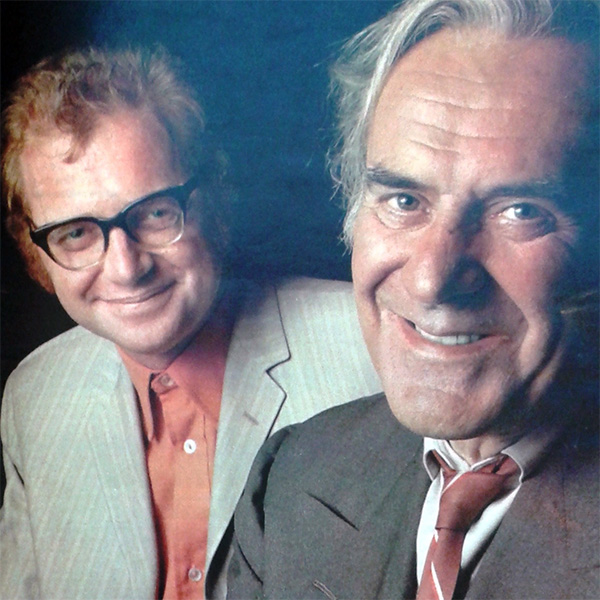
He had kept turning down a challenging part in a 1971 Dennis Potter play for the BBC, called Traitor, until his wife Joan finally managed to push him into accepting it (he would end up, much to his but no one else's surprise, winning a BAFTA for his performance, with the critic Nancy Banks-Smith judging it to be 'his Hamlet'). Similarly, it would later take a great deal of persuading before he eventually agreed to appear in another dramatic part, as a rebellious clergyman in David Mercer's 1978 satirical play Flint, even though, once started, he enjoyed the experience immensely.
It took Derek Taylor quite a while, therefore, to convince his friend that he would not be making a fool of himself by venturing into the music world as a participant rather than just a consumer. Once he came round to the idea, however, there was a rare sense of excitement in his eyes, and, slowly but surely, he began to ponder how best to proceed.
'Tentatively,' Taylor would recall, 'moving with the speed and determination of elderly snails, we built the structure, grain by grain'. The pair of Leacock readings seemed to suggest themselves immediately, and a couple of fine Noël Coward compositions (The Boy Actor and I Wonder What Happened To Him) were soon added.
Then two of John's favourite jazz performers, the singer Annie Ross and the pianist Alan Clare, were invited to contribute, with Clare accompanying Ross for renditions of his own That Tune and the Simon and Garfunkel song So Long, Frank Lloyd Wright, and Clare playing solo on John O'Groats and John and Joan's old favourite What's New?. In addition to a sublime reprise of his stage version of A Nightingale Sang In Berkeley Square, Taylor also persuaded John to sing (or at least speak-sing) a suitably witty number by Cole Porter entitled Thank You So Much, Mrs. Lowsborough-Goodby.
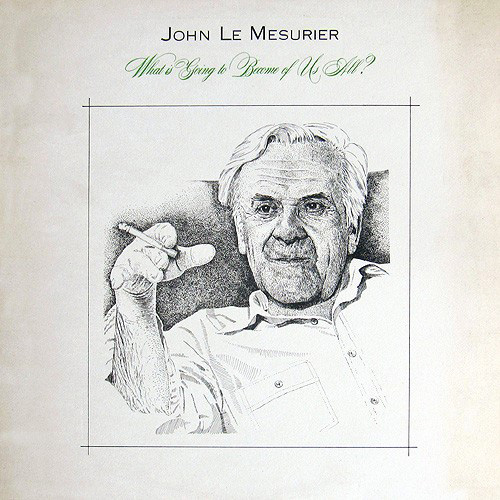
The record - which they decided to entitle What Is Going To Become Of Us All? - was completed by John reading a passage suggested by Joan from Laurie Lee's memoir Cider With Rosie, as well as a delightfully odd little letter addressed to 'John Le Mesurier' - that had actually been sent years before to quite a different John Le Mesurier - and the well-known Indian Prayer about remembering the dead while remaining engaged with the living. 'It is an album for everyone,' Taylor promised in his sleeve notes. 'It will make you very happy and at times it will make you sad but not for long, for most of all it connects.'
Released late in the autumn of 1976, during a period when the UK album charts were dominated by a mixture of disco, 'soft rock' and ABBA, the record was never going to trouble the Top 40, but most of those who did hear it were charmed by its elegant and very English idiosyncrasies. 'It got some good reviews in record journals,' John would later acknowledge in his usual understated style, 'but did not increase my bank balance by much.'
He was actually, in private, very proud of this labour of love (indeed, working on the project had, in Joan's opinion, given him 'more pleasure than anything he had ever done before'), and it certainly cemented his friendship with Derek Taylor. They met often from this point on (Taylor had recently returned to England and was now based in Sudbury, Suffolk, not far from the area where John grew up) becoming even keener correspondents than before, and, when John fell ill in the late 1970s, Taylor's wry little missives helped lift his flagging spirits.
'Derek's letters were a joy,' Joan later remarked. 'John would read them over and over again and when the family came to stay, Derek's letters were obligatory after-dinner entertainment.'
The way that John Le Mesurier coped with his declining health was very much in keeping with an outlook which prized enjoyment so much more than it did mere endurance. Having been diagnosed with cirrhosis of the liver, he agreed for a while to subsist on raw vegetables and salads, with not even tea or coffee, let alone alcohol, for liquid refreshment, but it did not take long before he decided that, in spite of the dangers, he would much prefer a few more glasses of beer.
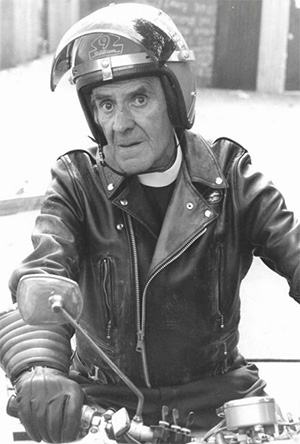
Joan duly organised an informal family 'intervention', and had those who cared most about him urged him to stay on the wagon for good. He listened patiently to everyone's argument, but then responded by defending, very politely, his own position: 'In all seriousness, my darling, I would rather have five years of living my way and having a drink from time to time with chums than ten years like this'.
'The funny thing was,' Joan would later reflect, 'that as soon as beer was back on his diet, he started to put on weight [and] the colour came back to his face.' It was a strangely illogical way for such a crisis to have been averted, even in the short term, but both of them were far too relieved to feel like questioning how it had happened, let alone how long it might last. As Joan put it, 'We were closer then than ever'.
John thus spent his last few years, as he always had, putting pleasure before business, and instinct before instruction, and he never expressed any regrets. When he knew that his time was coming to a close, he made sure that he left careful instructions for his surviving family to follow: 'I want you to promise me,' he said, 'that you will put in the Obituary column of The Times, that I didn't fall asleep in God's garden, or pass through the vale, or any such nonsense, I simply conked out'.
On what would turn out to be his last day alive (15th November 1983), in hospital with his wife Joan sitting by his bedside, he turned to her suddenly, sighed and said softly, 'Darling, I'm fed up of it now and I think I would like to die'. He then held her hand tightly and added with a sleepy-looking smile, 'It's all been rather lovely'.
What an epitaph, and what a life. John Le Mesurier did his very best, whenever he could, to give pleasure to others, and as for the rest, he found plenty of ways to fill up his own life with playtime.
Help us publish more great content by becoming a BCG Supporter. You'll be backing our mission to champion, celebrate and promote British comedy in all its forms: past, present and future.
We understand times are tough, but if you believe in the power of laughter we'd be honoured to have you join us. Advertising doesn't cover our costs, so every single donation matters and is put to good use. Thank you.
Love comedy? Find out moreDad's Army - Original Cast Recording

From Warner Brothers Records, the official, original cast recording of 1975's hit stage show based on the popular BBC television comedy series, Dad's Army.
The production was first staged at The Forum Theatre, Billingham.
First released: Wednesday 1st January 1975
- Released: Thursday 1st January 2009
- Distributor: Rhino
- Discs: 1
- Catalogue: LC2828
![]() Buy and sell old and new items
Buy and sell old and new items
Search for this product on eBay
BCG may earn commission on sales generated through the links above.
- Distributor: Warner
- Discs: 1
- Catalogue: K56186
![]() Buy and sell old and new items
Buy and sell old and new items
Search for this product on eBay
BCG may earn commission on sales generated through the links above.
John Le Mesurier - What Is Going To Become Of Us All?

13 track album of jazz, poetry and spoken word, from John Le Mesurier with Alan Clare and Annie Ross.
First released: Thursday 1st January 1976
- Distributor: Warner
- Discs: 1
- Catalogue: K54080
![]() Buy and sell old and new items
Buy and sell old and new items
Search for this product on eBay
BCG may earn commission on sales generated through the links above.
John Le Mesurier - A Jobbing Actor

John Le Mesurier's reminiscences are by turns touching and hilarious, and the vague and gentle warmth which endeared him to film and television audiences all over the world is a constant source of delight.
First published: Friday 13th February 1987
- Published: Friday 1st September 2023
- Publisher: Ariel Audiobooks
- Minutes: 365
![]() Buy and sell old and new items
Buy and sell old and new items
Search for this product on eBay
BCG may earn commission on sales generated through the links above.
- Publisher: Elm Tree Books
- Pages: 192
![]() Buy and sell old and new items
Buy and sell old and new items
Search for this product on eBay
BCG may earn commission on sales generated through the links above.
- Published: Monday 20th July 1987
- Publisher: Penguin Books
- Pages: 160
![]() Buy and sell old and new items
Buy and sell old and new items
Search for this product on eBay
BCG may earn commission on sales generated through the links above.
Do You Think That's Wise?: The Life Of John Le Mesurier

As Sergeant Wilson in Dad's Army, John Le Mesurier was the epitome of insouciance and languor. Cuffs undone, a half smile on his lips, oozing charm for the ladies to the pompous bantam cock that was Captain Mainwaring everything about his deputy spoke lounge lizard rather than soldier.
The real life of John Le Mesurier, as this authorised and definitive biography shows, was rather more complicated. To some extent Sergeant Wilson was indeed Le Mesurier playing himself: a man who prioritised a thorough perusal of the Racing Post in the morning before buckling down to rehearsals; who once sweet-talked a make-up girl into taking his watch off his wrist, winding it up for him, and tenderly putting it back on; from whom his friends would receive an early-evening phone call at witching hour consisting merely of a murmured, 'Playtime...?'
But while his acting career, ranging from I'm All Right Jack to Brideshead Revisited, found a glorious and sustained Indian summer in the greatest situation comedy British television has ever produced, in his private life this mild, quietly-spoken, decent man was plagued by turmoil and heartbreak. Married three times, he saw his first wife succumb to alcoholism, his second - the comedy diva Hattie Jacques - move her lover into the family home, and his third (though devotedly caring for him to the end of his life) enjoy a passionate dalliance with his former screen colleague Tony Hancock.
Ultimately, as this sympathetic and moving book shows, John Le Mesurier was a far more courageous, profound and admirable man than Sergeant Wilson was ever meant to be, and is immortalised in the ubiquitous repeats of Dad's Army.
First published: Saturday 25th September 2010
- Published: Tuesday 1st May 2012
- Publisher: Aurum Press
- Pages: 352
- Catalogue: 9781845137908
![]() Buy and sell old and new items
Buy and sell old and new items
Search for this product on eBay
BCG may earn commission on sales generated through the links above.
- Published: Monday 8th November 2010
- Publisher: Aurum Press
- Download: 2.07mb
BCG may earn commission on sales generated through the links above.
- Publisher: Aurum Press
- Pages: 256
- Catalogue: 9781845135836
![]() Buy and sell old and new items
Buy and sell old and new items
Search for this product on eBay
BCG may earn commission on sales generated through the links above.

